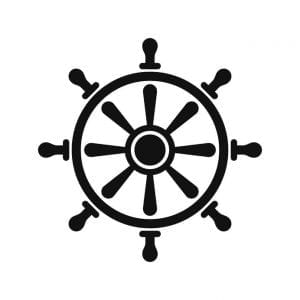Today I attended the 2007 Entrepreneurship Conference at the Stanford Graduate School of Business. One session that I truly enjoyed and found very informative was the “Going Solo or Partnering” Panel.
Going Solo or Partnering Panel: Stanford E-Conference
 Below are three questions and answers I believe capture the importance of developing a solid team.
Below are three questions and answers I believe capture the importance of developing a solid team.
Moderator Andy Rachleff – Founder, Benchmark Capital
Panelists
- Chris Larsen: Co-founder, Prosper
- Pradeep Sindhu: Founder, Juniper Networks
- Mendel Rosenblum: Co-founder, VMware
- Fermi Wang: Co-founder, Ambarella
How do you find good co-founders?
Consensus Answer: finding a good partner/partners is usually someone you have had a shared success with. It is someone you trust and whom you are willing to share every intimate detail about the business with. This person should be as passionate about the venture as you are and willing to risk it all and go to the end with you. There are only a few individuals that have all the necessary skills to run a business by themselves. An ideal partner would be a person who complements your strengths. It is okay to have some overlap but you really want someone who can bring differentiating attributes to the table.
How did you structure equity with your co-founders?
- Larsen- 50/50
- Rosenblum- split it equally with 5 people
- Sindhu- We split it 3 different ways, everyone agreed before we started
- Wang- 50/50
Consensus answer: it is important to figure out your founder’s equity early, otherwise it will cause major problems later on. All co-founders need to be clear on what they want out of the venture and how much time they are willing to put into it. You can prevent misunderstandings by setting up a metrics to measure each founder’s performance. Building a sustainable business is building something bigger than any one individual. You need to structure the company in a way that allows it to exist if a founder leaves. Also if the company takes off and exit opportunities arise, everyone needs to agree when to cash out.
Some important concerns that we believe should be addressed in your performance metrics include:
- Key product development milestones for key modules, first product, and whole product.
- Specifications and plans are needed for engineering and marketing. If you don’t have these it’s harder to know what to change to get different, and hopefully better results.
- Timetables that comprehend both internal dependencies and different levels of prospect and customer acceptance of your offering (e.g. it’s foolish to optimize a design when you can’t find anyone interested in the basic functionality).
Do you recommend starting a company by yourself?
Consensus Answer: No way! It is an extremely emotional and stressful process. You need someone to lean on and hold you up while things are down. You also need to be able to hold your partner up when they are having feeling low energy as well. Another benefit of having a co-founder is the ability to share ideas and listen to alternative perspectives. Furthermore, starting a company is such a time commitment it is almost impossible to do everything by yourself. With co-founders you can share tasks and relieve some of the workload.
Related Blog Posts
- Finding a Co-Founder
- Finding a Co-Founder: Compromise and Get Started
- Finding a Co-Founder: 3 Months is a Long Time to Wait For Revenue
- Three Tips for Minimizing Misunderstandings Among Co-Founders
- 3 Questions Technical Entrepreneurs Have For Potential Co-Founders
- Q: How Can I Manage the Stress of a Startup?
- Q: What Lessons Should I Draw From A Painful Cofounder Experience?
Image Credit: “Black Rudder” image licensed; © BlueBright
